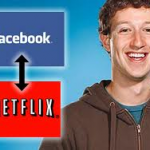
Mountain View, California — As the acquisition spree continues in an attempt to bolster its services in the most competitive global space, search engine titan Google has just snapped up Pittsburgh Pattern Recognition, or “PittPatt”, a technology firm that could almost certainly be used to enhance Google’s set of social, image, and video services.
Google+ could soon be much better with faces than Facebook. PittPatt, the facial recognition company announced the purchase on its Web site, that reads:
We are happy to announce that Pittsburgh Pattern Recognition has been acquired by Google!Joining Google is the next thrilling step in a journey that began with research at Carnegie Mellon University’s Robotics Institute in the 1990s and continued with the launching of Pittsburgh Pattern Recognition (PittPatt) in 2004. We have worked hard to advance the research and technology in many important ways and have seen our technology come to life in some very interesting products.

The company designs software to identify individual faces in both still images and video.
“At Google, computer vision application is already at the core of many existing products (such as Image Search, YouTube, Picasa, and Goggles), so it is a natural fit to team up with Google and bring the benefits of our research and technology to a wider audience,” PittPatt said on its website.
However, Google has been pretty hesitant to embrace such technology, given the obvious privacy concerns. In May 2010 Chief Executive Eric Schmidt, speaking to Financial Times said, “Anything we deal with in that area would be highly, highly planned, discussed and reviewed.”
“The Pittsburgh Pattern Recognition team has designed a ingenious technology in the sector of pattern recognition and computer vision. We think their research and technology can serve our users in many ways, and we look forward to working with them,” said a Google spokesman.
“We have said that we would not add face recognition to our apps or product features unless we have strong privacy protections in place, and that’s still the case,” a Google spokesperson said in an email. “The Pittsburgh Pattern Recognition team has developed innovative technology in the area of pattern recognition and computer vision. We think their research and technology can benefit our users in many ways, and we look forward to working with them.”
The Mountain View, Calif.-based Google spokesperson declined to comment on whether the technology might find a way in Google+, the company’s nascent social media network.
Google has a longstanding interest in visual search technology but so far, has not quite used facial recognition technology to automatically tag people, knowing that it makes many people uncomfortable.
In 2008, Google purchased a facial-recognition startup called Neven Vision, and implemented its technology into Picasa. Later, in 2009, the company rolled out Google Goggles, software that can recognize certain kinds of images. At the time, Google’s Vic Gundotra, then VP of engineering, said that Google had elected not to include the ability to recognize faces until it understood the privacy implications better.
PittPatt, a start-up established in 2004 by computer scientists from Carnegie Mellon University, announced the deal on its website last week, though no financial details was revealed.
“We will continue to tap the potential of computer vision in applications that range from simple photo organization to complex video and mobile applications,” PitPatt message read.
We look forward to joining the team at Google!
The team at Pittsburgh Pattern Recognition


